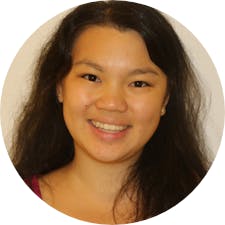I've been hearing two messages both explicitly and implicitly at Duke: “take advantage of all the diversity" and "find your niche." And as it's coming to that point in the school year where I'm starting to question whether I can sit with a table of new people at Marketplace anymore, it feels significantly easier to follow the latter than the former.
I worry that this problem is only going to get worse—that as we continue to get more deeply involved on campus, the more we will only associate with people whom we share something in common. And unless someone can convince people to actively leave a group of people they have already felt comfortable with, it seems like this is destined to be the course of events.
However, on a smaller scale, I suspect there's something much more innocuous going on, something that happened over and over again during O-week. Namely, being with someone different, perhaps someone who's fascinating, and simply not knowing what to say or what to talk about.
Youtuber and professional mathemagician Vi Hart created an interactive blog post on the effects of these small discomforts and biases. Suppose you live in a society with only triangles and squares. Each shape prefers to be surrounded with different shapes, but they only have one requirement for where they live: at least one-third of their neighbors have to be like them. If not, they move. This sounds like a perfectly reasonable request, a rule maybe you or I would follow. Yet, when the simulation plays out to the end, the neighborhood ends up incredibly segregated by fault of no one individual. In Vi Hart's words, "These are good shapes, nice shapes. And yet, though every individual only has a slight bias, the entire shape society cracks and splits."
When people talk about the "Duke bubble," I fear that people's own bubbles are much smaller than they realize. Of course, the Duke bubble within Durham exists, but what about the Duke bubble within Duke? It's one thing to not be able to relate to someone who, statistically speaking, is probably much older and didn’t go to a school like Duke. It's another to meet someone who was hand-picked to attend this school along with you, at the same stage of their life, living on the same campus, and not be able to find anything to talk about. In fact, I'd argue that the former is nearly impossible to accomplish without first accomplishing the latter.
William Deresiewicz, in his essay "The Disadvantages of an Elite Education," starts off with an anecdote about having no idea how to relate to the plumber in his house. As he writes, "Some people are smart in the elite-college way, some are smart in other ways, and some aren’t smart at all. It should be embarrassing not to know how to talk to any of them, if only because talking to people is the only real way of knowing them. "
Admittedly, the Duke population is skewed. Nationwide, 51 percent of students enrolled in public schools in 2015 were classified as low-income. At Duke, 50 percent of students don't receive financial aid—placing many of us in the upper deciles of American society. 10 percent of students nationwide attended private schools, while 23 percent of the class of 2019 attended a private school. Despite Duke's efforts to be more inclusive (and I acknowledge that it's going to be a slow and arduous process), this is still very much an elitist institution. Nonetheless, it’s a starting point.
Maybe reaching this level of diversity doesn't meaning befriending everyone and being able to hold an engaging conversation with everyone. Maybe it's okay to enjoy a not-so-diverse friend group, and diversity within intellectual discussion. Maybe the solution is figuring out ways to show each other what we have in common beyond superficial appearances, activity affiliations and a love of some sport they call basketball. Or maybe it’s just demanding the tiniest bit more diversity in our various communities. With the triangles and squares, adding a constraint that one would also move if 90 percent of their neighbors were like them (in addition to moving if one-third of their neighbors weren't like them) resulted in a community that was much more diverse.
Of course, our society has many more metaphorical shapes than triangles and squares and we can’t transplant ourselves to a new spot in the neighborhood with a click and drag, but dismantling any sort of self-segregation at Duke has less to do with dismantling the structures that most people blame and more with addressing how to relate to people effectively. Talking and having a good conversation with someone seems mindblowingly simple, yet this is the belief that is holding us back.
Amy Fan is a Trinity freshman. Her column, "fangirling," runs on alternate Tuesdays.
Get The Chronicle straight to your inbox
Signup for our weekly newsletter. Cancel at any time.

Amy Fan is a Trinity senior. Her column, "fangirling," runs on alternate Thursdays.
